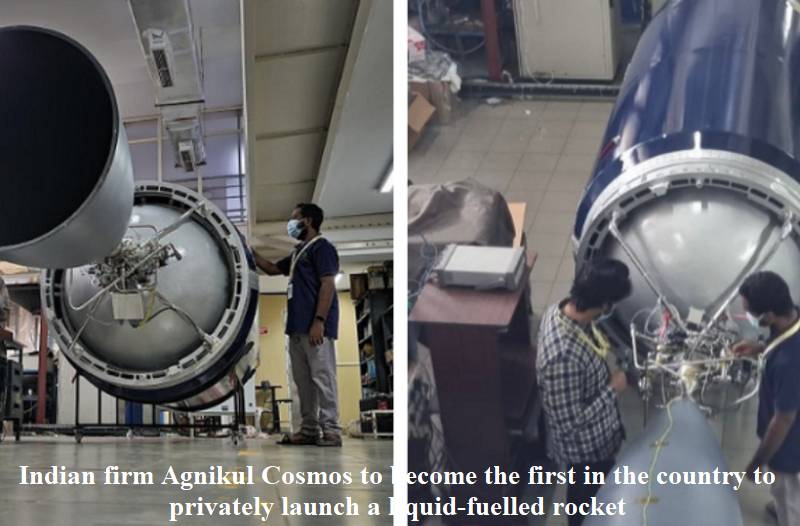
Indian company Agnikul Cosmos is making significant strides towards becoming the nation’s pioneer in privately conceptualizing, crafting, and initiating a liquid-fueled rocket. In comparison to solid-fueled rockets, the process of designing and constructing liquid-fueled counterparts is considerably more intricate.
Agnikul aims to unveil their inaugural rocket, the ‘Agnibaan SOrTeD’ (SubOrbital Technological Demonstrator), within the upcoming weeks. This debut rocket is intended for suborbital launches, intended to reach the upper echelons of Earth’s atmosphere without delving into outer space. For burgeoning enterprises, suborbital launches offer an optimal means of evaluating and authenticating their primary rocket and affiliated subsystems, thus paving the way for more ambitious endeavors.
The foundation of ‘Agnibaan SOrTeD’ centers on Agnikul’s patented Agnilet engine. This engine is a fully 3D-printed, single-component, semi-cryogenic engine with a thrust of 6kN. Unlike conventional solid-fuel sounding rockets, which ascend along guide rails, ‘Agnibaan SOrTeD’ will ascend vertically and traverse a predetermined trajectory while executing precisely choreographed maneuvers mid-flight.
In a ceremony attended by officials from ISRO (Indian Space Research Organisation) and IN-SPACe (Indian National Space Promotion and Authorization Centre), Agnikul’s team showcased their launch vehicle at the Agnikul Mission Control Centre (AMCC), nestled within India’s government-operated Satish Dhawan Space Centre. Notably, Agnikul boasts India’s inaugural private rocket launch pad, situated within the same compound.
A. Rajarajan, Director of SDSC-SHAR, expressed optimism about Agnikul’s progress and offered well-wishes for their inaugural flight and upcoming undertakings. This suborbital launch holds the pivotal purpose of confirming the functionality of Agnikul’s exclusive autopilot, navigation, and guidance algorithms, in addition to testing the launchpad’s competence for more intricate missions.
Moin SPM, Agnikul’s COO and co-founder, emphasized the integration of diverse systems and interdisciplinary teamwork in the process of constructing a launch vehicle. The vehicle’s presence on the launchpad stands as a testament to the collective effort invested by the team.
Agnikul, established in 2017 by Srinath Ravichandran, Moin SPM, and Prof. SR Chakravarthy from IIT Madras, is dedicated to democratizing space exploration by making it both affordable and attainable. Although the firm initially aimed for a maiden launch by September 2022, the complexity and engineering sophistication inherent to kerosene-liquid oxygen rockets have led to a one-year delay.
Notably, ‘Agnibaan SOrTeD’ will represent India’s inaugural kerosene-liquid oxygen (semi-cryogenic) rocket to be conceptualized, produced, and initiated. Simultaneously, ISRO is also in the process of evaluating its own semi-cryogenic engine, which boasts heightened potency and sophistication compared to Agnikul’s private endeavor. ISRO’s SCE-2000 is projected to substantially augment the lifting capability of India’s LVM3 rocket.

Post Your Comments